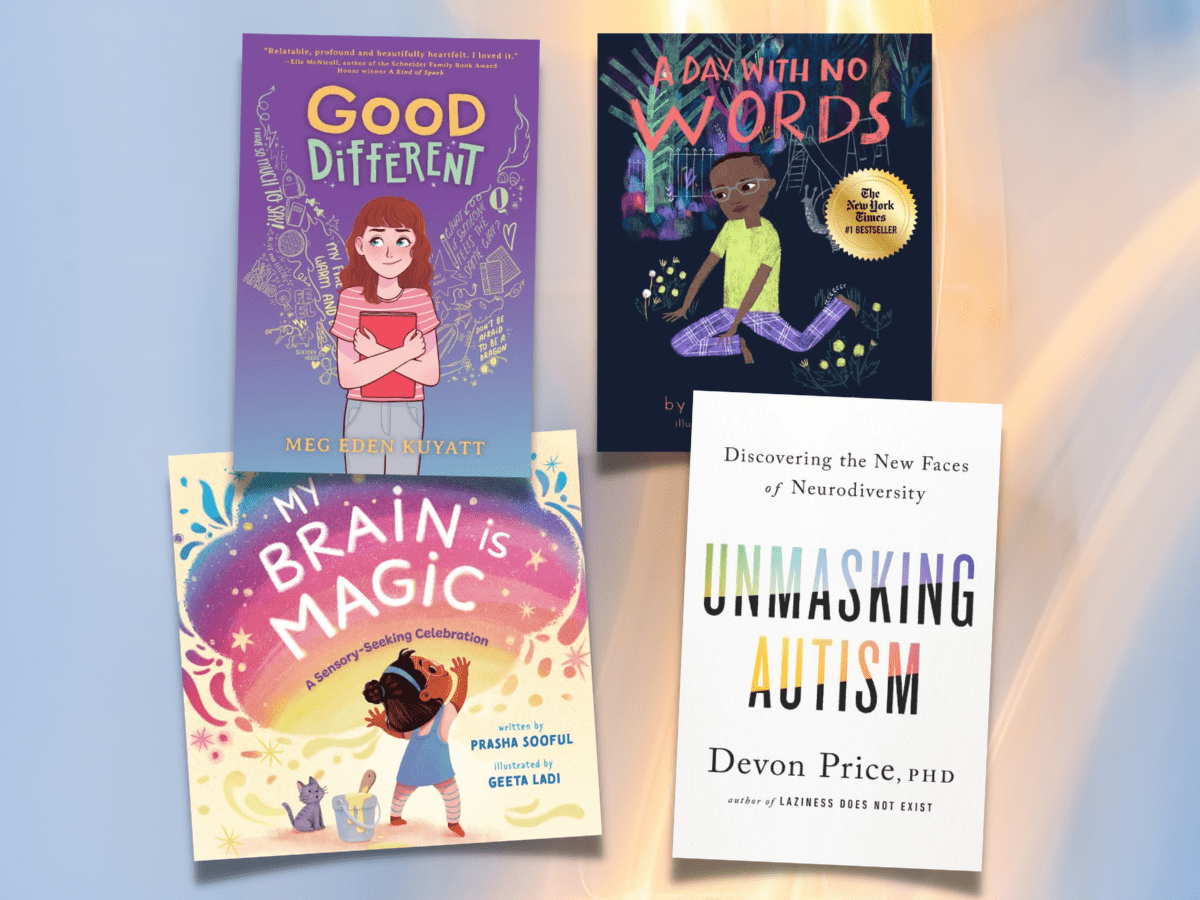Every April, people all over the world celebrate Autism Acceptance Month! You might’ve heard of this annual event called Autistic Awareness Month before. Thanks to the work of Autistic advocates, the focus has shifted from general awareness and understanding to one of more active acceptance, towards a forward-thinking mindset about autism, putting the voices of Actually Autistic individuals at the forefront.
Autism falls under the neurodiversity umbrella that represents one in five people whose brain works differently, to put it very simply. Being neurodiverse doesn’t mean someone is defective or needs to be fixed. There are lots of preconceived notions about what autism is and how Autistic people should behave. Thankfully, there are many resources available for anyone looking to learn more! One place to start is the Autistic Self Advocacy Network’s short definition of autism, a great way to learn more and why self-advocacy is vital.
The Free Library can help you celebrate Autism Acceptance Month! Earlier this month, we explored the neurodiverse programs that happen all around the Free Library. Of course, the Library has many books from Actually Autistic authors too, as well as other neurodivergent writers. A great place to start is in our library community, where you can find personal reviews and book lists. The Autistic Voices and Allies and Autism Acceptance book lists are all great starting points. For younger readers, check out the Autism Acceptance Day: Teen Reads and Autistic Kids lists.
I reached out to the librarians behind some of the book lists on our website to share their recommendations from these lists:
Shelley’s Pick:
Unmasking Autism: Discovering the New Faces of Neurodiversity by Dr. Devon Price
"Unmasking Autism is an incredible, life-changing book that I’d recommend to any adult on the spectrum — or who suspects they might be on the autism spectrum. Many Autistic people never receive a formal diagnosis due to gendered and racialized stereotypes, or because they learned early on that being different would result in bullying and discrimination. The coping skills that helped someone survive adolescence — known as masking — then become detrimental in adulthood. Through a blend of scientific evidence, interviews with Autistic adults from diverse backgrounds, and personal narrative; Dr. Devon Price describes the struggles Autistic people face trying to fit neurotypical expectations, and the severe toll it takes on one’s mental health. Included are worksheets, exercises, and strategies for self-acceptance, unlearning old dysfunctional coping skills, new healthy skills for coping with — and preventing — Autistic Burnout, and building a life full of Autistic joy and community. The coping skills and strategies covered in the back half of the book apply to all Autistic adults, whether or not they were diagnosed as children."
Allegra’s Picks:
My Brain is Magic by Prasha Sooful
"One of my favorite books on my list is My Brain is Magic. It’s a sensory-seeking book, but I’ve read it to Autistic Support classes and preschool classes and it resonates with so many kids. I love telling kids that my brain is a lot like the girl in the book because I think it surprises them."
A Day With No Words by Tiffany Hammond
"A Day with No Words by Tiffany Hammond is fantastic! It’s a beautiful book written by an Autistic mom to two Autistic boys. It also features characters that aren’t white, which is wonderful. I think it’s great to portray what AAC users might do, and it shows a very fierce advocate mom who makes a great point to other moms at the park."
My Pick:
Good Different by Meg Eden Kuyatt
"This middle-grade novel is told in verse, letting the reader feel directly in the main character Selah’s mind. She does everything she can to be 'normal' at school, following all the rules she’s made for herself and not letting anyone know about her overwhelming feelings, special interests, or anything that might make anyone think she’s different. But what’s wrong with being different? Selah soon discovers a whole world of people like her, happily and proudly being themselves."
Remember that Autistic authors can write about anything, they don’t just write about life with autism! Check out Fiction by Autistic Authors to find your next fiction read — you’ll find something there for fans of every genre.
Finally, the Philadelphia City Institute Library’s Neurodiverse Reads Discussion Group is a space to discuss books about neurodiversity. This monthly book club is for older teen and adult readers, with a different book discussed monthly. Learn more by emailing hoopese@freelibrary.org, calling 215-685-6621, or stopping by the Reference Desk at the branch.
Hope you enjoy some engaging reads this Autism Acceptance Month!
Have a question for Free Library staff? Please submit it to our Ask a Librarian page and receive a response within two business days.





